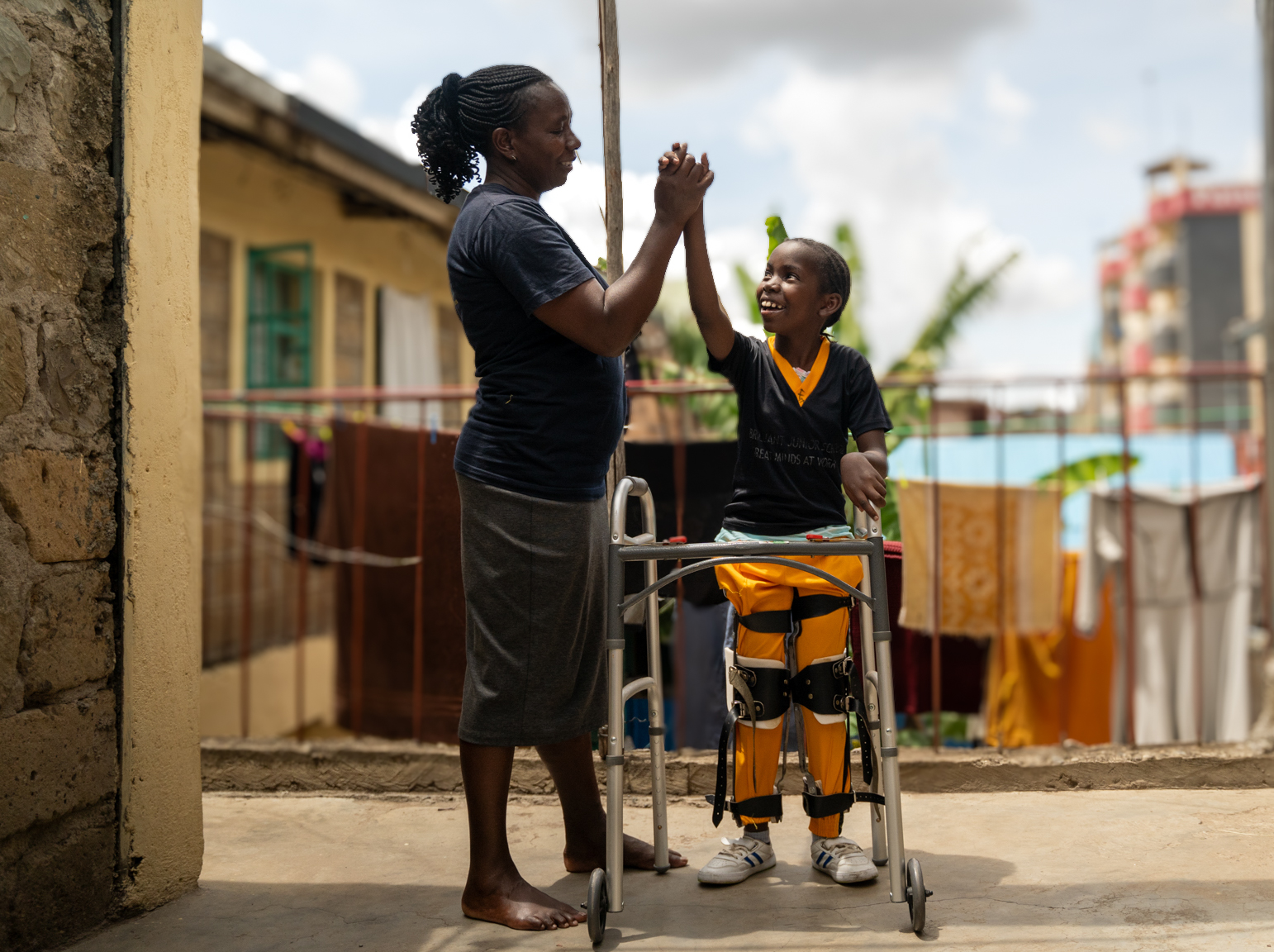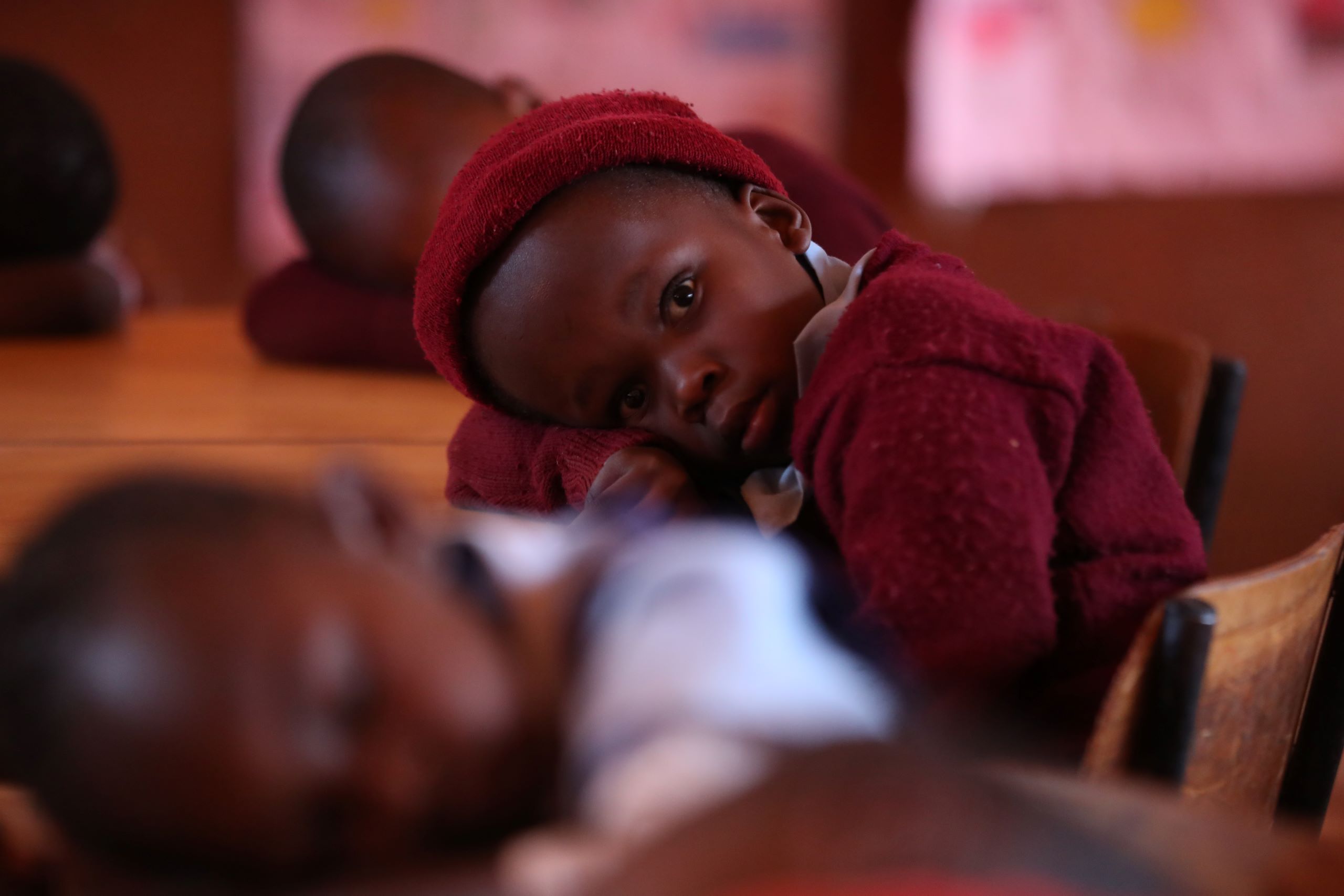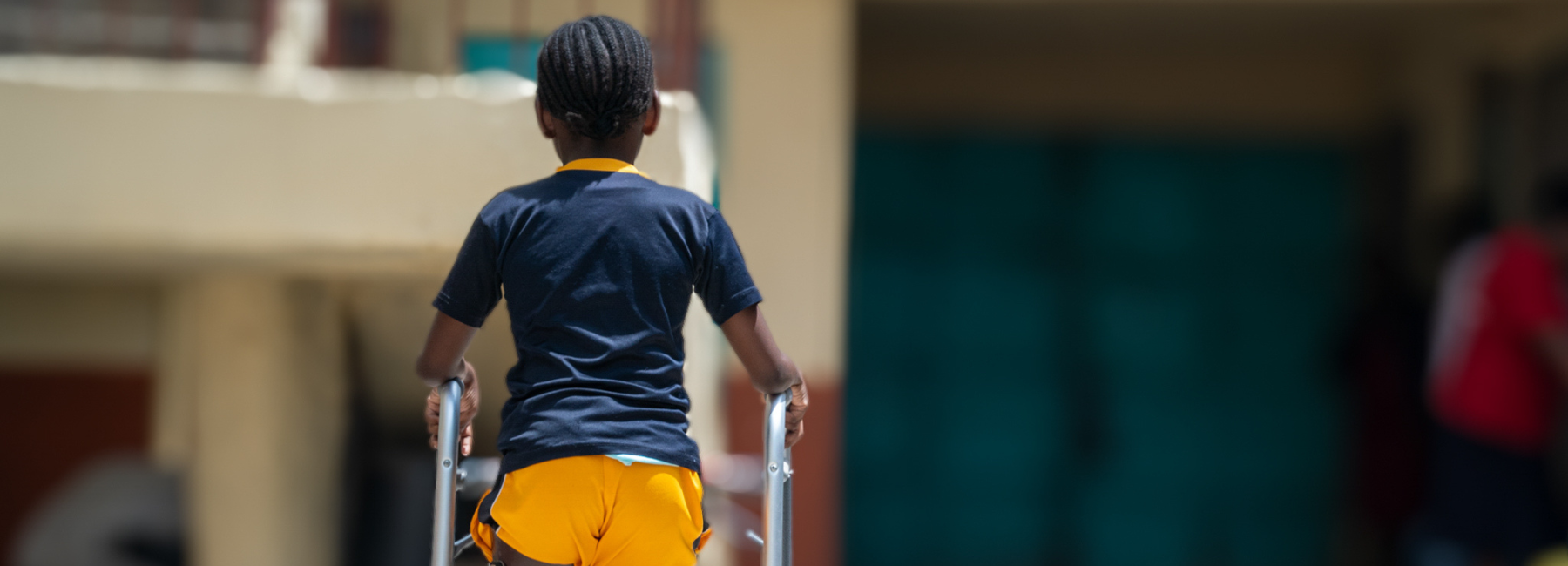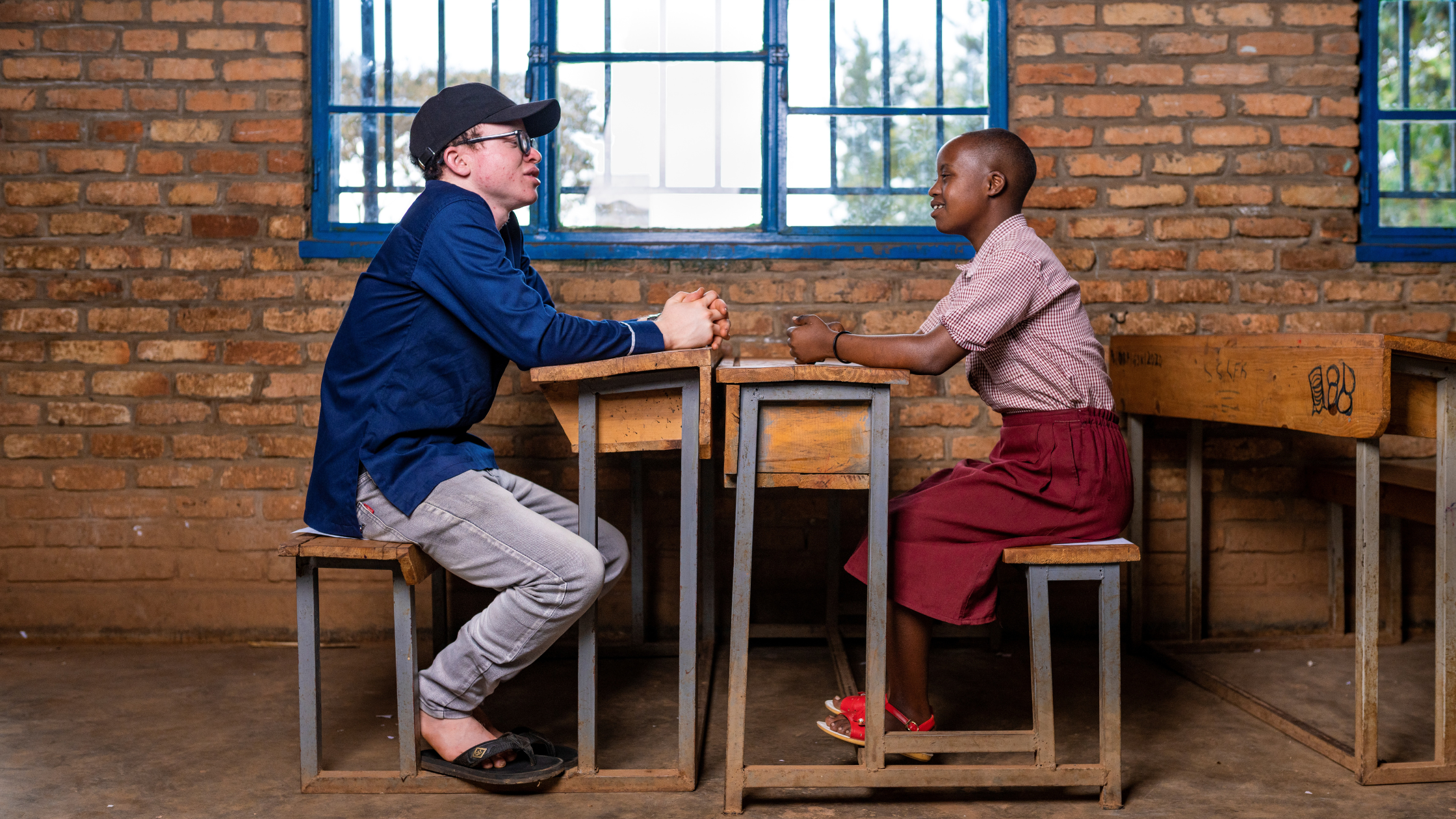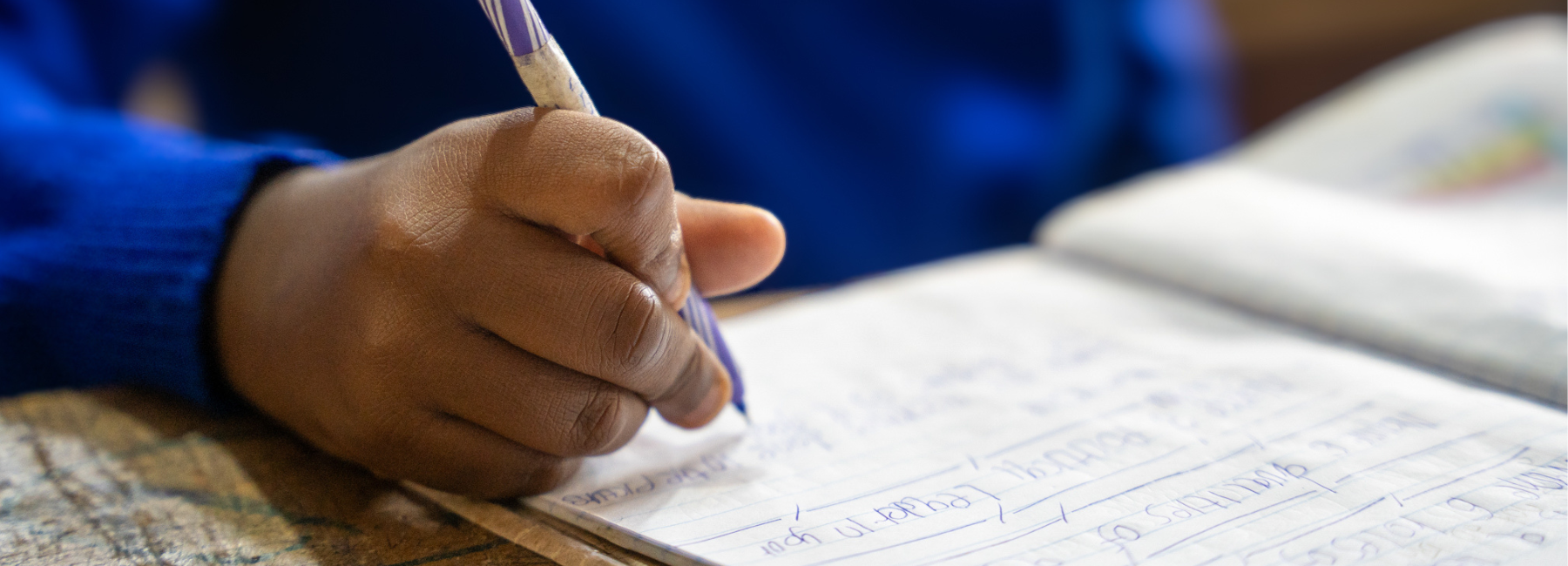Malaika lives with her mother in Kenya and is the youngest of three siblings.
She is 10 years old and has cerebral palsy which can affect movement and coordination. When Malaika was born in hospital, she did not show any signs of having cerebral palsy and so it was not identified at that crucial early stage. Seven months later, Malaika’s mother noticed that some of her developmental milestones were not being reached. Her mother took her to the nearest hospital, but the doctors were again unable to recognize the disability due to the gap in early identification and disability awareness among health care providers in the district. Again, Malaika went undiagnosed.
Malaika’s mother waited for another six years for Malaika to walk but when it became clear that she could not walk unassisted, her mother sought further intervention. After analysis of Malaika’s bone chemistry, doctors found low calcium levels which explained why Malaika could not walk and she was diagnosed with having cerebral palsy. Malaika was finally given calcium supplements to help her.
However, Malaika’s challenges did not end there.
While Kenya has a system of free primary education, very few children with disabilities have access to early education, leading to lifelong educational inequalities. In turn, this means young people with disabilities are less likely to be employed, and more likely to be living in poverty. With limited access to education or health care, these young people continue to face injustice, stigma and sometimes abuse and violence.
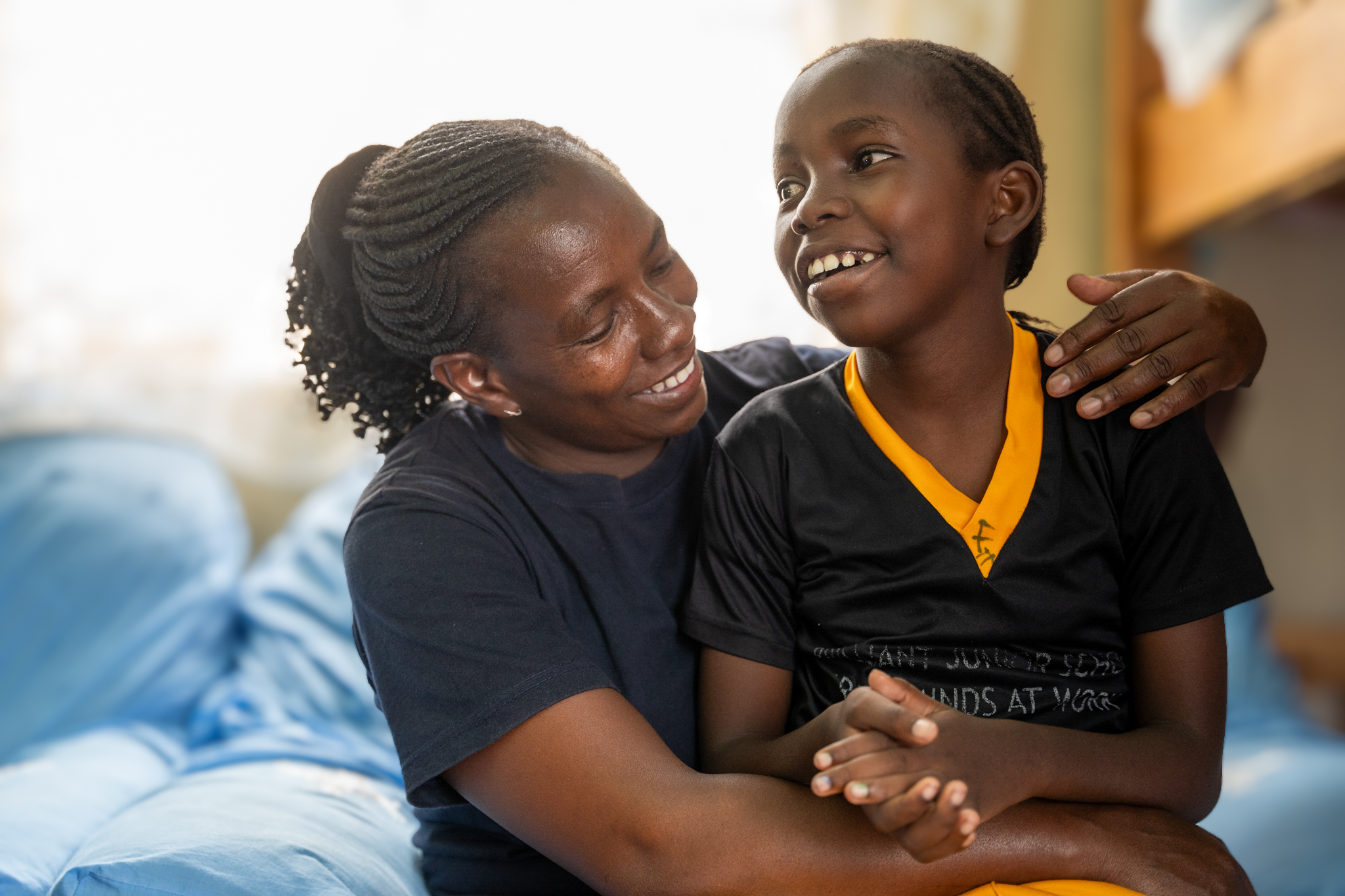
This is where we came in.
Alongside our network member Action Network for the Disabled (ANDY), we rolled out our inclusive play Early Childhood Education project where children with and without disabilities learn how to play together in an inclusive way, allowing for positive interactions between all children. This inclusive early education equips them with skills and knowledge to transition into primary education and beyond.
Teachers who have received training and continual support in inclusive play sessions, tailor activities to the needs of the individual children with disabilities. Malaika was given the platform to learn alongside her peers and develop meaningful relationships around her.
Malaika’s mother also benefitted from her local Parent Support Group which gave her emotional support and the tools to face her family’s challenges. Through the support from the group, Malaika’s mother has been able to start her own business which provides crucial financial relief.
This extra income has allowed Malaika to stay enrolled in a school near her home. Malaika continues to interact well with other children and is the top of her class.
Together, we can transform the lives of more children like Malaika.
Join Us